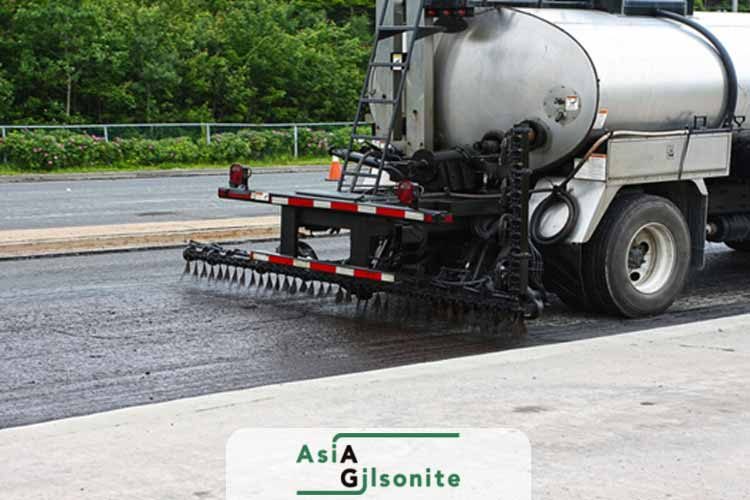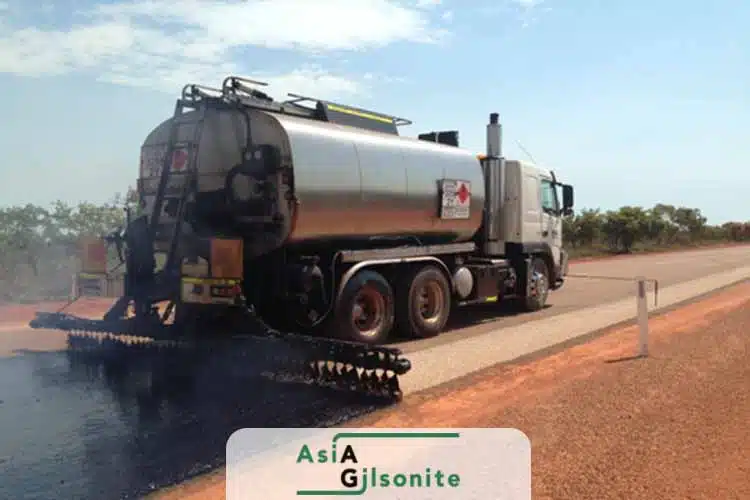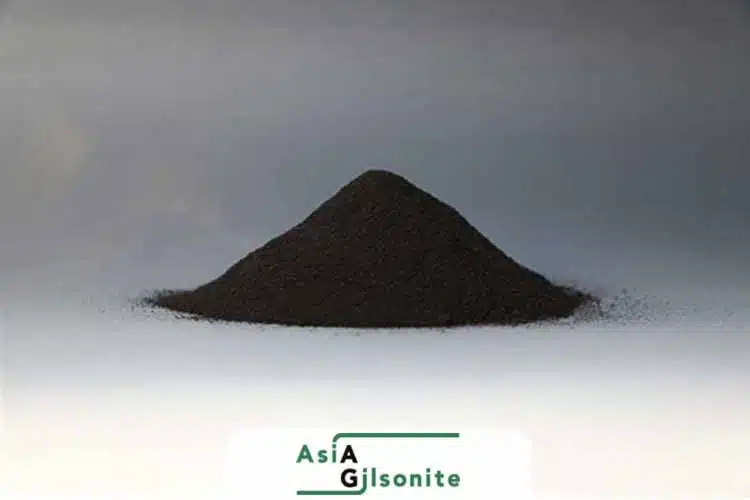Table of Contents
ToggleAsphalt powder is a vital material used in a range of roadway construction projects, composed of a complex mixture of aggregates like sand, gravel, stone, asphalt cement, and water.
This versatile component gives the construction both flexibility and durability, demonstrating its wide array of benefits. To look more closely at the formula of powdered asphalt, we’ll analyze what it is, how it’s made, the various applications it can be used for, and more in the following article.
What is Asphalt Powder?
Asphalt powder, otherwise known as asphalt concrete, asphalt sulfonated, and asphalt paving, is masterfully crafted from a combination of aggregate materials and asphalt cement, ranging in size from sand to gravel, and crushed stone.
A unique feature of this material is its ability to unite a sticky, viscous asphalt cement with varying shapes and sizes of aggregates, resulting in a sturdy and adaptive composition able to withstand hostile weather conditions and even the heaviest of traffic!
Properties of Asphalt Powder
Asphalt powder is a finely ground material, often of a black hue, that is derived by breaking down asphalt concrete or Gilsonite into a fine powder form. This powder is composed of two major components: aggregate, which typically comprises of sand, gravel, or crushed stone, and asphalt binder made from crude oil.
The remarkable durability of powdered asphalt makes it an ideal choice for roadways, parking lots, and other construction projects that call for a strongly protective layer. Its properties make it able to withstand heavy traffic, climatic conditions, and wear and tear, while still remaining hard and reliable.
Further, the ease of application afforded by powdered asphalt is an attractive quality. This ease of transportation and the various ways in which it can be applied, make it an ideal selection for large-scale construction projects, where speed and effectiveness remain of superior importance.
How Is Asphalt Powder Made?
Asphalt powder is an essential material for creating durable and long-lasting surfaces. It is made up of a combination of several materials, including aggregate, asphalt cement, and water. The process of making asphalt powder begins with heating the aggregated material to remove any excess moisture.
Once the aggregated materials have been heated, they are then combined with asphalt cement, which acts as a binding agent. To ensure that the asphalt cement is adequately distributed throughout the aggregated materials, a small amount of water is added to the mixture. This helps to ensure a uniformly distributed and consistent mixture.
After the mixing process has been completed, the asphalt powder is then transported to the paving site for asphalt paving, where it is spread and compacted over the surface. The powdered asphalt is then subjected to high temperatures of up to 300 degrees Fahrenheit, allowing the asphalt cement to properly bond with the aggregated materials.
Following this, the asphalt is allowed to cool and harden, transforming it into an impermeable and dependable surface.
Applications of Asphalt Powder
Powdered asphalt is an unparalleled option for road building and paving, for its capacity to provide exceptional surfaces that can persist in the face of heavy traffic and severe weather conditions. Moreover, its affordability makes it a preferred choice on construction sites.
Yet asphalt powder is not limited to mere road construction: it can also be used to build parking lots, sidewalks, and driveways. Its properties make it advantageous for creating runways for airports and other transportation facilities as well.
Advantages of Asphalt Powder
The utilization of powdered asphalt in construction projects has a wide range of advantages. Most notably, its endurance. This particular material creates a protective layer that is resistant to hefty traffic flow, intense weather conditions and various forms of wear and tear. Thus making it a widely accepted form of material for roadways, car parks, asphalt paving and other projects that require a hard-wearing surface.
Ease of application is another of powdered asphalt’s tempting attributes. It is a lightweight material, making it uncomplicated to transport and use on a variety of surfaces with various techniques. This feature makes it the perfect option for expansive development projects, where swiftness and effectiveness are essential and time is of the essence.
Not to mention, asphalt powder is highly cost-effective. Its elements are akin to those found in asphalt sulfonated concrete, ultimately resulting in a lower price tag. This makes it a popular choice amongst construction companies as well as other organisations seeking to save money on their building projects.
Disadvantages of Asphalt Powder
Powdered asphalt has a multitude of advantages when used for construction projects, but there are drawbacks to consider as well. Chief among these is its tendency to be messy and challenging to work with. The powder’s tiny particles can easily end up on skin, clothing, and other surfaces, which can be a real struggle to clean off.
Additionally, due to its powdery form, asphalt powder can become airborne or swept away in the wind or rain, making it hard to apply on surfaces in a controlled and even manner. This could ultimately lead to poor-quality results and even reduce the overall durability of the surfaces being worked on.
Aside from potential inconvenience, the use of powdered asphalt has an undesirable environmental effect. Given that it is derived from crude oil, it is far from being a renewable resource. Furthermore, its usage and production can have a negative impact on the environment, causing air pollution and other pollution-related issues.
Conclusion
Asphalt powder is a highly durable, cost-effective material commonly employed in construction projects. Formed by grinding asphalt concrete into a powdery, easily transportable substance, this product boasts myriad advantages when utilized in construction.
Yet, careful thought must be given to its possible downsides, such as messy application process and environmental impact, as well as its specific requirements for each project, before choosing it.
In summary, asphalt sulfonated has the potential to be the ideal choice for certain construction endeavors; nevertheless, its pros and cons must be carefully considered beforehand.




